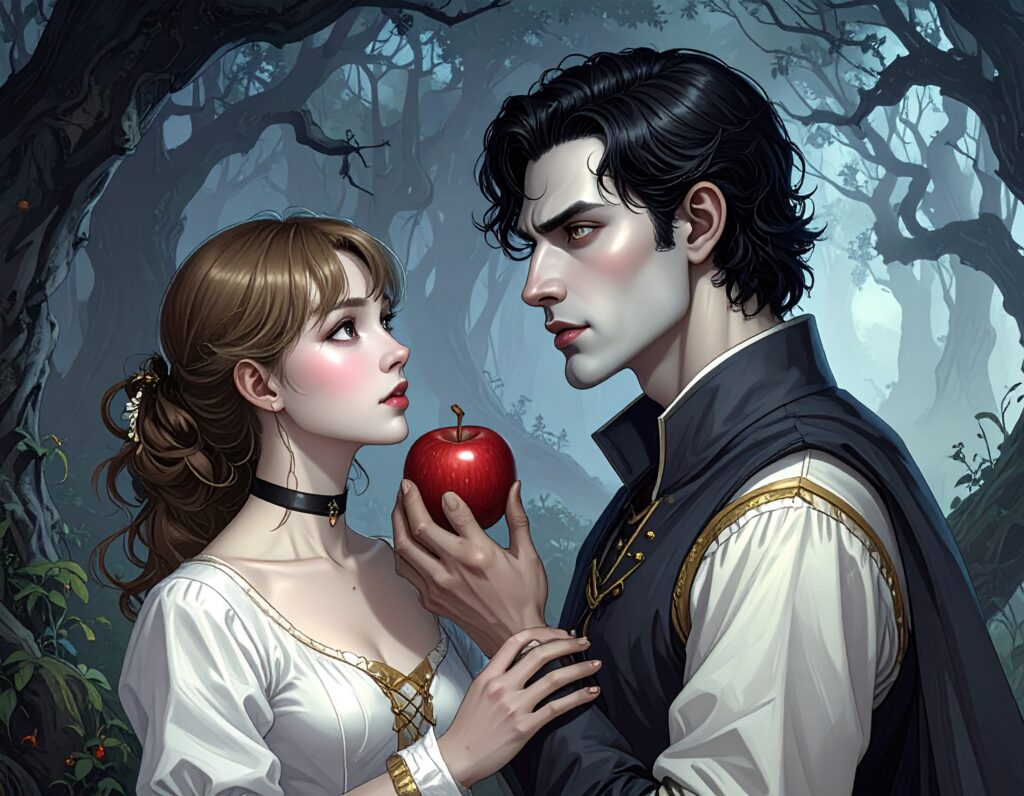
Dark romance: harmless escapism or dangerous genre? Image AI generated by author using Adobe Firefly.
Dark romance and the ethics of freelance editing
About ten years ago, while freelance editing and proofreading for publishers, I worked on lots of fiction that made me uneasy. Specifically, novels replete with the violent assault and murder of women, described salaciously and in stomach-turning detail.
Who read these books? I honestly do not know. From memory, most were by men (although sometimes under a female pen name). They certainly felt paternalistic. But then a contemporary article suggests women buy and read most novels.
At roughly the same time, a similar genre generated endless ‘misery lit’ paperbacks with titles like Please Let Me Out of the Cupboard, Mummy. The imploring faces of children gazed out from their covers as if trying to persuade passing shoppers that spending a tenner on yet another tale of woe could make the world better.
As if reading about trauma is somehow a virtuous act.
Eventually, the fad passed. The pleading faces of children no longer called to me as I passed Books and Magazines on my way to Frozen Foods in the supermarket.
But this week The Bookseller discusses fiction’s latest hot topic: dark romance. This genre, which features themes including psychological trauma, relationships full of red flags and relational violence, is currently very popular, and growing.
What are the ethical choices in freelance editing?
If I learned one thing from the mid-to-late twenty tens, it is that editors – from commissioning to production – must make ethical choices. They must choose not only what to publish, but also what context, rationale and quality to insist on.
Dark romance differs from the books I mention above. For a start, lots of dark romance authors are female. You could argue that sets up a completely different power dynamic, one where women – previously the default victims – actively direct events. Or that dark romance is a safe space in which readers can explore the difficult forces in life.
And yet, internalised misogyny and misandry exist. And fiction’s power extends beyond author–reader relationships. Fiction can help readers to make sense of the real world.
Engaging with fiction can be risky
Furthermore, if we accept that fiction has the power to change people, we must acknowledge the risk in extreme narratives.
I do not believe in banning genres. But some always need a pre-publication risk assessment. Authors and editorial departments must, as far as possible, identify and mitigate adverse impacts.
Because those impacts affect us all. Just as some women restrict their lives to minimise risk, so men can suffer when cast as the default offender, especially in a world that tends to overlook relational violence against them.
Poor quality dark romances may lead readers, particularly vulnerable readers, to internalise and normalise attitudes and interactions that should be avoided and discouraged.
After all, if you feed your internal world on violence and threat, with which you engage empathically, why would that not bleed into your world view, even unconsciously?
On the other hand, if there really is no interface between fiction and reality, then what point does fiction serve?
Additionally, it may be unhelpful for a genre foregrounding relational violence to be associated strongly with female readers and authors. It allows misogynists to claim that women desire, or have a natural affinity with, dangerous relationships. Or that female authors rely on the ‘bad boy’ stereotype because they cannot write three-dimensional male characters. Thoughtful, tempered narratives can limit that.
Thoughtful editing is an ethical duty
If we accept that fiction can change views and feelings, then publishers and editors have a corresponding moral duty. Namely, to present contentious material in high quality forms that encourage thoughtful reading and analysis. Novels should not be published purely because they are dark romance and there’s a market for that right now. They should be published because they are high quality narratives in the form of dark romance.
Of course, authors will write, and publishers will publish, dark romance to meet demand. That is good business. But authors have a duty to write well and thoughtfully. Meanwhile, editors must question authors whenever content feels gratuitous or exploitative.
Consider a book in which the killer murders loads of women in salacious detail until the police arrest him. The end. Now consider a book where a man murders lots of women and the author considers the social forces that may have influenced the man’s criminality; the effect of his violence upon his victims and others; and the dilemmas facing all involved. One of these might guide readers to conclude that ‘women should stay at home if they want to be safe’ or ‘it is perfectly normal to be excited or titillated by women’s pain and suffering’. The other might provoke more nuanced and productive thought. Good editing – freelance editing in collaboration with the author that draws out the full potential of the story – can make that difference.
Responsible publishing avoids censorship
The banning of books is to be avoided wherever possible. But publishers cannot publish everything that comes their way. Some subjects or individual works are too obscene, violent or hateful for publishers to align themselves with. Some will be rejected by, or for, the public in an imposition of shared values.
Dark romance occupies a grey area between reality and fantasy, horror and normality. Yet dark romance probably helps some readers to deal with ‘taboo’ ideas. These are difficult forces to balance. But when it comes to maximising good while minimising harm, freelance editing can make the difference.
All media contribute to the moral and emotional temperature of society. Publishing dark romance purely to cash in on a trend and without due diligence is not, I suggest, a victimless crime.
Comments are closed